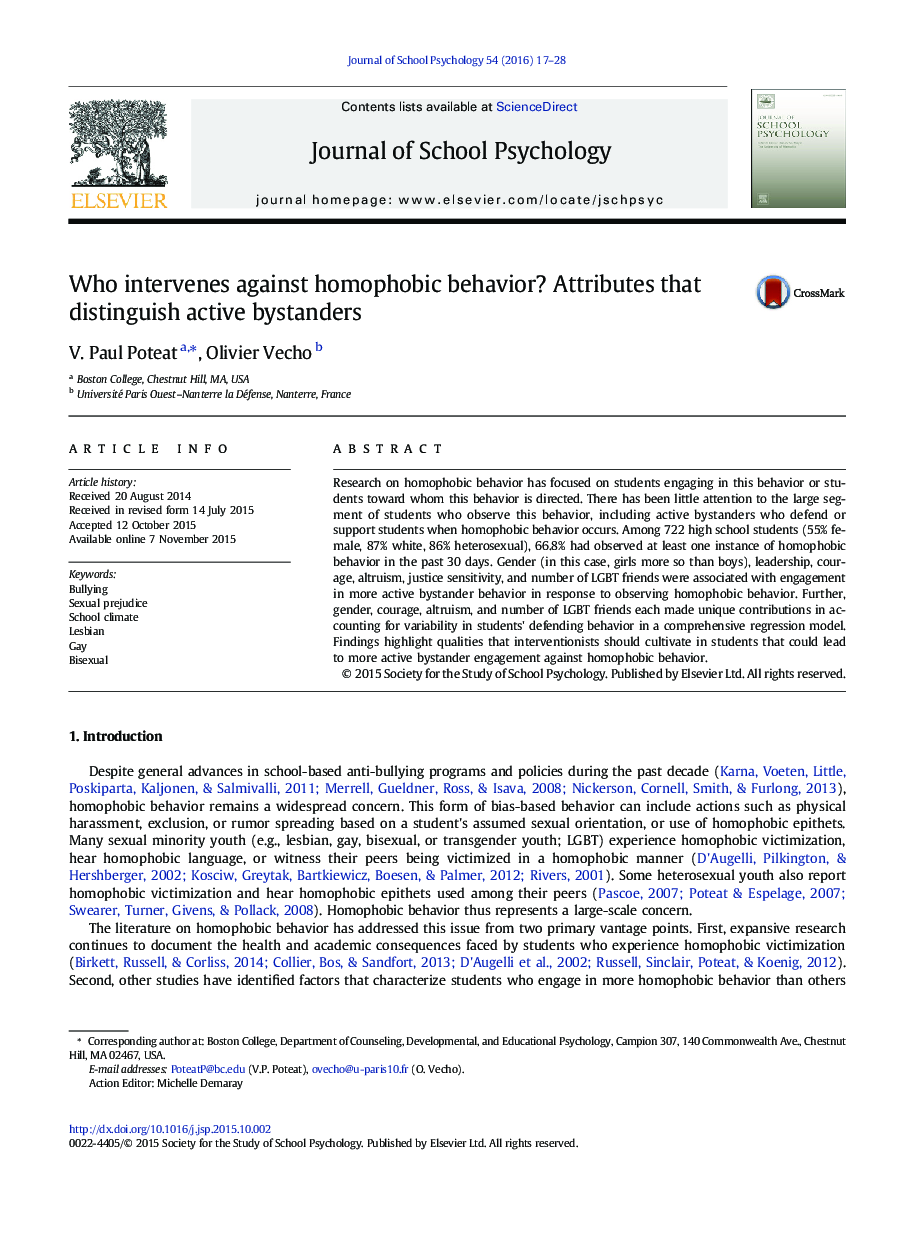| Article ID | Journal | Published Year | Pages | File Type |
|---|---|---|---|---|
| 363502 | Journal of School Psychology | 2016 | 12 Pages |
Research on homophobic behavior has focused on students engaging in this behavior or students toward whom this behavior is directed. There has been little attention to the large segment of students who observe this behavior, including active bystanders who defend or support students when homophobic behavior occurs. Among 722 high school students (55% female, 87% white, 86% heterosexual), 66.8% had observed at least one instance of homophobic behavior in the past 30 days. Gender (in this case, girls more so than boys), leadership, courage, altruism, justice sensitivity, and number of LGBT friends were associated with engagement in more active bystander behavior in response to observing homophobic behavior. Further, gender, courage, altruism, and number of LGBT friends each made unique contributions in accounting for variability in students' defending behavior in a comprehensive regression model. Findings highlight qualities that interventionists should cultivate in students that could lead to more active bystander engagement against homophobic behavior.
